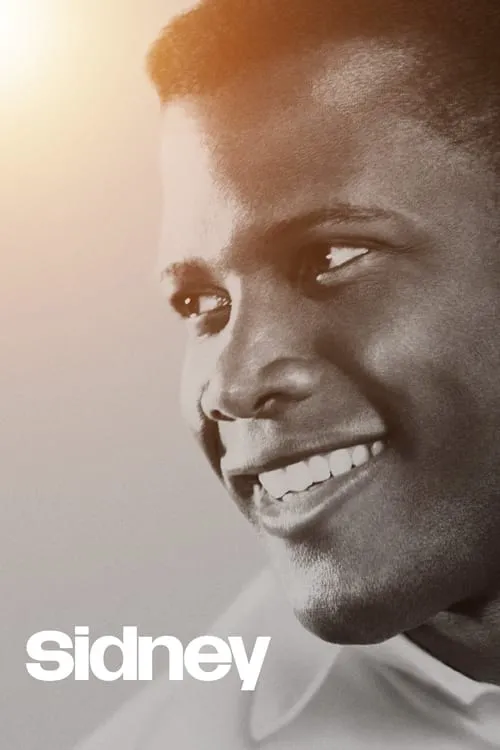Sidney

Plot
Sidney is a deeply personal and introspective documentary that delves into the remarkable life and career of Sidney Poitier, the Bahamian-born actor, director, and civil rights advocate who has been an enduring icon in the entertainment industry. Through exclusive interviews with Poitier himself, as well as a star-studded cast of industry professionals, including Denzel Washington, Spike Lee, Halle Berry, and many more, this poignant film not only celebrates Poitier's numerous achievements but also sheds light on the complex issues and obstacles he faced throughout his journey. The documentary begins by chronicling Poitier's early life, born on February 20, 1927, in Miami, Florida, to Bahamian parents. Growing up in a low-income household in the impoverished areas of Miami, Poitier witnessed firsthand the struggles faced by African Americans in the 1930s and 1940s. Despite these challenging circumstances, Poitier found solace in reading and acting, eventually landing his breakthrough role in the 1950 film "No Way Out," a drama directed by Joseph L. Mankiewicz that marked a significant milestone in Poitier's career. Throughout the film, Poitier's journey is highlighted through his own recollections and reflections, as well as through interviews with his peers, colleagues, and family members. Spike Lee, the renowned film director and fellow civil rights advocate, shares his admiration for Poitier's groundbreaking performances, including his Oscar-winning turn in "Lilies of the Field" (1963). Lee praises Poitier's unwavering commitment to telling socially conscious stories that highlighted the Black experience and challenged the status quo. One of the most compelling aspects of the documentary lies in its exploration of Poitier's relationships and conflicts with other industry professionals, particularly during the tumultuous period of the Civil Rights Movement in the 1960s. The film examines the tensions between Poitier and fellow actor, Harry Belafonte, who often clashed over their differing perspectives on representing Black communities in Hollywood. Furthermore, it delves into the complexities of Poitier's friendships with actors and activists, including Sidney Lumet and Harry Belafonte, which, at times, led to heated debates over the appropriate role of Black artists in shaping their own stories. In a fascinating segment, director and film historian, Julie Dash, sheds light on the significance of Poitier's role in shaping the Black cinema movement of the 1970s and 1980s. Dash highlights Poitier's pivotal influence on films such as "Sounder" (1972) and "Buck and the Preacher" (1972), which addressed themes of family, community, and social justice. Poitier's commitment to supporting emerging talent, including Dash herself, is also a recurring theme throughout the documentary. Throughout its 92 minutes, Sidney showcases the breadth and depth of Poitier's talent and influence. Denzel Washington, one of Poitier's most ardent admirers, shares a heartwarming anecdote about Poitier's mentoring and guidance, which played a significant role in shaping Washington's own path to stardom. Washington praises Poitier for being a trailblazer in Hollywood and for embodying a commitment to excellence and empathy on set. Halle Berry, who has spoken at length about Poitier's impact on her own career, also appears in the documentary, discussing the significance of Poitier's Oscar win in 1964 for "Lilies of the Field." Berry explains how witnessing Poitier's triumph empowered her own aspirations and encouraged her to pursue her goals with unwavering determination. One of the most remarkable aspects of Sidney lies in its thoughtful and nuanced portrayal of Poitier's personal life. Through candid interviews with his wife, Joanna Shimkus Poitier, and his children, the documentary delves into the complexities and difficulties that arose during Poitier's rise to stardom. It also showcases the strength and resilience of Poitier's relationships, which have endured for decades. The film concludes with an extended conversation between Poitier and director Reggie Rock Bythewood, as the two friends reminisce about their shared experiences in the industry and the importance of representing Black culture on-screen. Through Poitier's reflections on his life, the documentary offers a profound exploration of the power of storytelling and the significance of perseverance in the face of adversity. Ultimately, Sidney is more than just a tribute to Sidney Poitier's legendary career – it's a powerful testament to the profound impact one individual can have on the world. As it weaves together an intimate and insightful narrative, the documentary leaves the viewer with a deeper appreciation for Poitier's achievements and a renewed commitment to the ongoing struggle for equality and social justice that has defined his remarkable life and legacy.
Reviews
Recommendations




